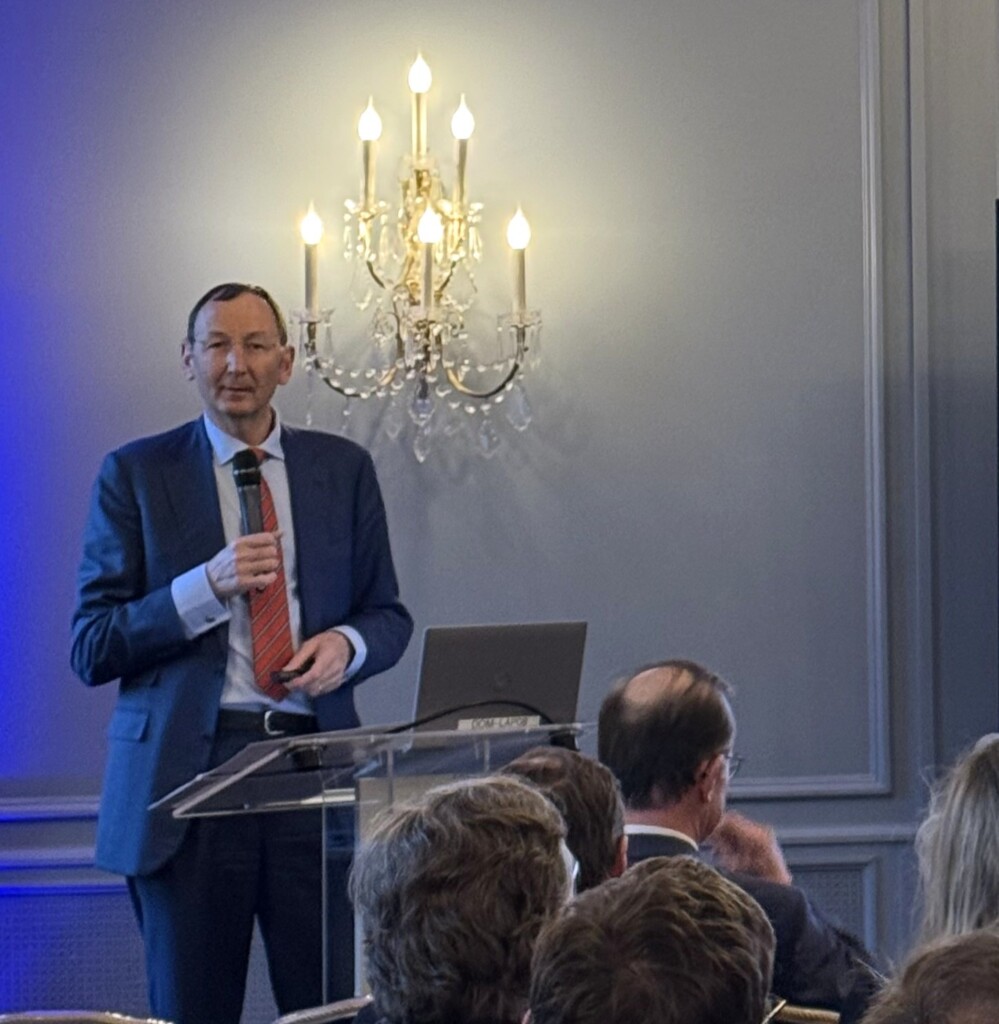On February 4, 2025, Dominicé welcomed clients and partners for its annual conference. Michel Dominicé, Senior Partner, and Benoît Mandosse, Partner and Head of Wealth Management, shared their vision for 2025 and their strategies in response to financial market uncertainties.
Mega-Capitalization: Bubble or Long-Term Trend?
Michel Dominicé opened the presentation by analyzing the growing weight of mega-cap stocks in the S&P 500 index. “The top 10 largest market capitalizations represent 38% of the index, with Apple, Microsoft, and Nvidia leading the way,” he noted, “compared to 25% during the dot-com bubble of the early 2000s.” This trend is driven by factors inherent to the knowledge economy: the establishment of industry standards (Microsoft with Office), technological superiority (Nvidia), and product ecosystem effects (Apple).
This concentration is further amplified by network effects and the scalability of digital models: “The more large companies gain market share, the more barriers they create for new entrants.”
“The top 10 largest market capitalizations represent 38% of the index, with Apple, Microsoft, and Nvidia leading the way,” Michel reiterated, “compared to 25% during the dot-com bubble of the early 2000s.”
What are the Challenges for Investors?
However, this dominance is not guaranteed. Michel highlighted risks related to disruptive technologies, drawing a parallel with Kodak, which was displaced by digital photography, and the loss of leadership, as seen with Intel being overtaken by Nvidia. “Even the giants can quickly lose their dominance.”
“The key question for investors is: should you buy Microsoft or Nvidia today, or identify the future leaders?” he asked the audience. Predicting the next winners is complex, and avoiding large-cap stocks and the U.S. market in portfolios remains challenging despite the risks they pose: “If you don’t hold these stocks, you’re taking a significant risk relative to the index.”
At Dominicé, our experts seek to diversify portfolios by emphasizing real assets through a trilogy of Swiss real estate, equities, and volatility arbitrage strategies.
“The key question for investors is: should you buy Microsoft or Nvidia today, or identify the future leaders?” Michel asked the audience.
Read also: Transitioning to Real Estate Funds | Dominicé
The surge in Public Debt
Michel then addressed the challenges associated with the growing public debt: “U.S. debt stands at 120% of GDP, a level not seen since 1945.” Unlike the post-war era, today’s environment is marked by an aging population and weak productivity gains, limiting the dilution of debt within GDP. Additionally, the knowledge economy introduces another complexity: “The mobility of companies intensifies tax competition between countries, pushing tax rates downward and reducing public revenues.” Countries like Switzerland benefit from this dynamic, while others, like France, struggle to retain talent.
Generating Alpha
Benoît Mandosse continued the presentation with a key question—how can investors maximize their performance? According to him, “Diversification is a powerful tool, particularly through real estate and alternative strategies. These solutions provide a performance lever while helping to mitigate the effects of excess liquidity in a context of negative real interest rates.”
He emphasized that “every management cost must be justified by value creation.” Proactive management and strict liquidity control are essential. “Excess liquidity weighs much more heavily on performance than one might think. It is therefore preferable to have well-invested portfolios rather than holding too much cash.” Finally, he stressed the importance of looking at indices: “Tracking performance allows investors to identify the causes of underperformance and address them.” This approach enables investors to adjust their portfolios while staying true to their investment strategies.
Read also: 2024, A Good Year for Hedge Funds
…”Diversification is a powerful tool, particularly through real estate and alternative strategies. These solutions provide a performance lever while helping to mitigate the effects of excess liquidity in a context of negative real interest rates”, shared Benoît Mandosse.
Switzerland Stands Out
During a Q&A session, our experts discussed trade tensions and the decline in international cooperation, which add to global uncertainties. “The rise in tariffs complicates disinflation, especially in the U.S., and puts pressure on central banks,” Michel explained. However, despite global uncertainties, Michel Dominicé foresees a favorable context in Switzerland. The country remains an attractive safe haven for investors due to its stability and professional opportunities. “Switzerland attracts talent and capital, which continues to strengthen its role as a secure refuge.”
Conclusion
Investors will need to navigate a complex environment marked by mega-cap concentration and macroeconomic pressures. By controlling costs, managing portfolios rigorously, diversifying investments, and maintaining disciplined comparison against indices, they will be better equipped to tackle challenges and seize opportunities.


